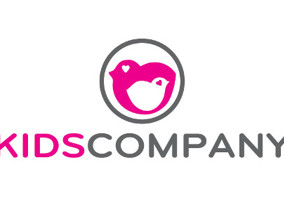Kids Company’s founder has blamed the political system, philanthropists and the media for the collapse of the charity, which she claims was closed down “malevolently and abruptly”, in a book published today.
The founder and former chief executive of Kids Company, Camila Batmanghelidjh, wrote the book, Kids – Child protection in Britain: The Truth, with Tim Rayment, which aims to tell her version of the events that led up to the collapse of the charity, as well as highlight systemic issues in Britain’s child protection system which she says need to be addressed.
In the book Batmanghelidjh says: “I believe Kids Company was closed down malevolently and abruptly because Britain was unable to tolerate seeing its lack of welcome for vulnerable children reflected back at it.”
She claims that part of the problem is that Kids Company became too big.
“Cabinet Office had tried and failed to get an independent auditor to find weaknesses in our charity and when that did not work, it drew up the report it wanted itself. Civil servants and ministers were engineering the closure of Kids Company,” she says.
She also claims that records showing Kids Company’s model to have been effective were “mislaid”.
Batmanghelidjh says the charity’s 'See the Child. Change the System' campaign was the “final straw”.
She adds that she found that “there is a risk in being an advocacy and a service-delivery provision in one. If you challenge politicians and it does not suit their agenda, they retort by shutting down the services of the organisation”.
‘Media allegations brought us down’
She attacks the media and says various journalists contributed to the collapse of the charity.
Batmanghelidgjh says this happened even though allegations of abuse aired by Newsnight had “no substance” and the charity was cleared by the police.
She writes that “we closed the day before the broadcast because the damage had been immediate.”
She also says that other negative media reports about the charity discouraged potential donors.
Defends record
She also used the book to defend Kids Company’s record against some of the criticism that was levelled at it at the time of its collapse.
On the allegation that the charity was handing out cash to children, she said “for the most part, it handed out Tesco vouchers”, and that where money was given it was for things like electricity bills.
She addresses the issue of spending money on designer clothes for young people. She says she knew this was something that funders did not understand.
“I couldn’t put in a request to a charitable trust for 300 pairs of Nike trainers. Most people’s idea of a poor child is an Oliver Twist type, sweet and begging,” she says but that “the trainers are a necessary step to education. They give a kid the dignity to tolerate the shame of not reading and writing, then walk into college to learn”.
She also says that the charity was supporting people into their thirties because traumatised children are emotionally stunted.
Difficulty fundraising
She highlights that the charity only got around 30 per cent of its income from government and that most was raised from individual donors, but she was concerned that “sooner or later it would die from donor fatigue”, which is why she was seeking more funding from government.
She said the “survival of the Kids Company model would depend on persuading the government to fund us fully, either through a special grant or by seeing the model adopted in local authorities”.
She explains that “by 2013, the philanthropists who supported Kids Company were getting fed up. They had been happy to fund a charity they saw as an innovator, but 17 years down the line they were tired of covering for government failure.”
Batmanghelidjh maintains that she had been promised £20m by Oliver Letwin, then a senior minister in the Cabinet Office, to fund the charity’s work.
A year before the collapse she says Letwin told her they “were now a proven programme that needed proper resourcing”.
She claims that various civil servants and people in government reassured her over the following few months that the funding was coming, and says she was surprised that when the funding came it was significantly below the £20m.
‘I did not have founder syndrome’
Batmanghelidjh denies that the charity suffered from ‘founder syndrome’ or that staff faced unfair pressures. She says that she did her best to make them feel supported.
“I did not perceive myself as the founder of Kids Company: instead, I was the catalyst who facilitated,” she says.
She also says that she “tried not to burden” trustees as they are unpaid, and praised their efforts.
"Our trustees worked really hard and did not deserve the unjust attack they were exposed to," she says. "They were at the top of their professions, extremely rigorous and profoundly committed to the cause. They were being punished because they cared enough to fight for what is right and not give up."
Ongoing investigation
The Charity Commission opened a statutory inquiry shortly before the charity collapsed which is still ongoing
The Official Receiver was appointed to wind up the company and the Business Secretary is seeking to ban Batmanghelidjh and the trustees from being company directors for between two-and-a-half and six years.
A government spokeswoman said: "The Charity Commission and Official Receiver are undertaking investigations. It would be inappropriate for us to comment while the investigations are still ongoing."
Related articles










